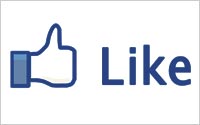 The Better Business Bureau's National Advertising Division has ruled that marketers can legitimately entice consumers into “liking” pages on
Facebook by offering discounts, promotions or free merchandise.
The Better Business Bureau's National Advertising Division has ruled that marketers can legitimately entice consumers into “liking” pages on
Facebook by offering discounts, promotions or free merchandise.
But the NAD also said marketers that do so must fully disclose the terms and conditions of those offers.
“Facebook
users are aware of the fact that people 'like' content for many reasons -- one being to gain access to promotions, contests and sweepstakes offered through Facebook,” the NAD wrote in its
opinion in the case.
The decision stemmed from a complaint by 1-800-Contacts against the competing contact lens seller Coastal Contacts. 1-800-Contacts argued that Coastal Contacts improperly
lured users into "liking" its Facebook page by promising “free” eyeglasses.
advertisement
advertisement
Coastal's “like-gated” promotion asked consumers to "like" a Facebook page in order to
receive free glasses, but the ads soliciting the “likes” didn't say that consumers still had to pay shipping charges and that only certain styles of glasses and types of lenses were
eligible for the offer. The promotion also did not initially convey that Coastal only planned to give away a total of 10,000 glasses. Consumers were not told that information until after "liking"
Coastal's Facebook page.
The result, 1-800-Contacts alleged, was that Coastal “fraudulently” increased its social presence and Facebook visibility. 1-800-Contacts wanted the NAD to
require Coastal to remove all of its Facebook “likes” that stemmed from the promotion. The NAD sided with Coastal on that point, ruling that the company's Facebook "likes" were
genuine.
“So long as actual consumers 'liked' the Coastal page, and those consumers who participated in the like-gated promotion received the benefit of the promotion, then Coastal does
in fact have the general social endorsement that the 'likes' convey.” the NAD wrote.
But the organization said that Coastal should have done a better job of conveying the terms of the
offer. “Both FTC guidance and NAD case precedent have long recognized that 'free' claims must clearly and conspicuously disclose, at the outset of the offer, the material terms and conditions
of the offer in close conjunction with the free merchandise claim,” the NAD wrote.
Coastal ultimately revised its promotion to notify consumers up front about the strings attached to
the offer, according to the NAD. Advertising law attorney Terri Seligman, a partner with Frankfurt Kurnit Klein & Selz, says the NAD's ruling in the case clarifies that marketers can
legitimately entice consumers into making social-media endorsements.
“It is okay to use an inducement to get somebody to “like” you,” she says. At the same time, she
notes the decision reinforces a longstanding principle that marketers should not bury key terms when advertising “free” merchandise -- even if only in exchange for an endorsement.
“To the extent that you're using a 'like-gate' to postpone material terms and conditions, that's probably not a good idea,” she says. “The NAD won't take kindly to that --
particularly if the offer uses the word 'free.' ”